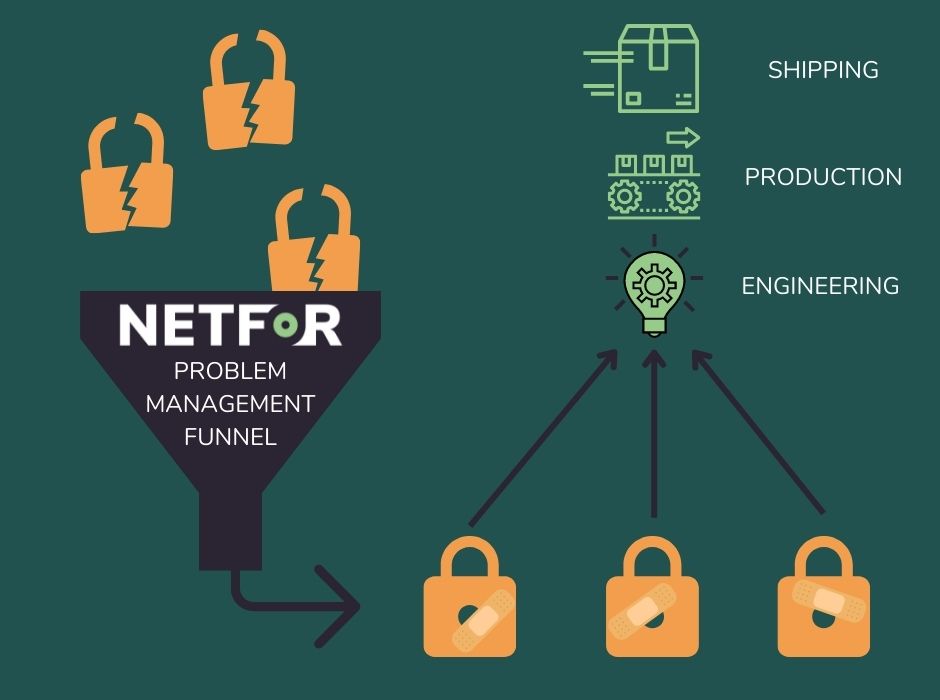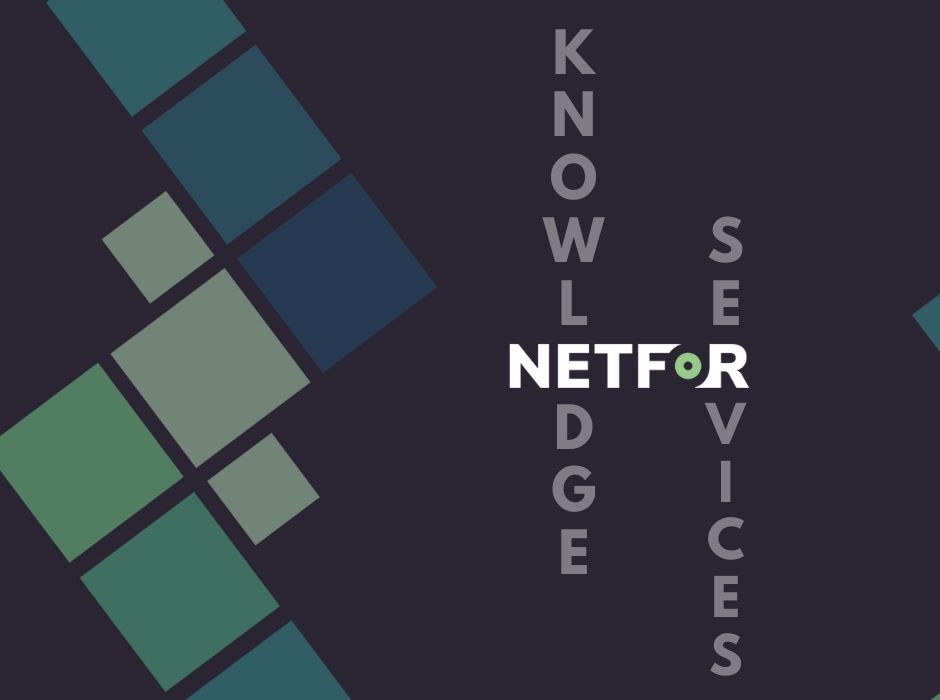Most companies protect their secrets more aggressively than they protect the lives of their key executives. It’s been reported that only two people at KFC’s headquarters know the exact proportion of the eleven herbs and spices behind the Colonel’s original recipe. The secret formula for Coca-Cola rests in an Atlanta vault. And don’t expect the folks at Google to release a handy guide to their industry-leading algorithms anytime soon. There’s also been a valuable secret to Netfor’s success in business process outsourcing (BPO). It’s the company’s process for planning, developing, maintaining, and leveraging its knowledge about its business partners’ processes and procedures. Netfor takes a proven method to learn everything it can about those processes and procedures, documenting every detail, transforming it in formats allowing immediate access and sharing, and constantly updating and refining it.
Knowledge Services at Netfor is not just a stack of documents that sit in a folder and wait to be used; it is the catalyst that enables clients to focus on their own company’s core strengths by eliminating the distractions and interruptions of the day to day minutia.
That proprietary methodology results in significantly higher customer satisfaction scores and places the company’s service well ahead of industry norms in every metric Netfor tracks. It’s simply that powerful. So why in the world would Netfor’s brass consider sharing its secrets with the organizations it serves?
It’s a valid question with an easy answer: everything Netfor does is focused on pursuing a shared vision of success with its business partners. If giving them the keys to this proprietary process will help those organizations get better at serving their markets while solving and preventing internal problems, that’s what we’re going to do.
Through a line of business we’re calling Knowledge Services, we’re developing frameworks for the four knowledge-centered areas we see as pain points for most growing companies. By applying our proven methodologies to these four areas, we’ll help companies better understand and organize what they know — and may not realize they know — so they can use their knowledge to create greater value for their own customers. Let’s look at each of the four areas:
Knowledge management. Your organization knows a lot. Most of it resides in the brains of your subject matter experts. Some of it is lurking in a dark corner of a server, laying on a post-it note on somebody’s desk, or fades away on a scrap of paper someone jotted down during a conference. In fact, you probably have no idea just how much your organization knows, so you can’t leverage it.
We’re experts at discovering, gleaning, and gathering knowledge from all sorts of sources. More importantly, we know how to organize that knowledge and transform it into actionable guides and written steps. The next time a customer calls with a familiar problem or an employee isn’t sure what step to take next, the answer’s right there. In other words, our process lets organizations access the value hiding inside knowledge to make customers happier and employees more efficient. Instead of leaving that knowledge scattered across people and paper, we organize it and then keep enhancing and improving it as the business changes.

Service catalog. A service catalog isn’t like what L.L. Bean mails to you as the temperature falls, urging you to exchange your hard-earned money for outerwear. Instead, it’s a critically important collection of knowledge. Specifically, it documents everything your organization does and who you do it for.
Think that sounds simple? Think again. When someone on a plane or at a networking event asks what your company does, you could give a ten-second summary. But you probably find that answer getting longer as you talk, because you also do this, that, and some other thing. Oh, and there’s the service you used to promote a decade ago, and only two customers still use it, but you do that, too. And as a favor, you also do that thing the people at that other company asked for. Not so simple, is it?
By capturing, organizing, and documenting everything your organization does (and who exactly does what), it becomes easier for leadership to understand the potential impact of decisions. It calls attention to potential problem areas and conflicts. It provides a roadmap for allocating current resources, spotting future needs, and highlighting opportunities for improvement. Most importantly, it gives customers and employees an easily digestible summary of how to interact with your internal business … more happy customers and employees please!
Enterprise documentation. Phil is a veteran IT guy. And IT as we all know, powers almost every business large and small on the planet. His employer’s technology has evolved into something increasingly complex and layered, a stew of new equipment and legacy platforms held together with the digital equivalent of duct tape, kite string, and rubber bands. It works because Phil makes it work. When an accounting module suddenly stops communicating with an inventory app, Phil sighs, taps some keys, and in minutes, things are good again. The only problem is Phil’s going on a long vacation tomorrow morning. And when he leaves, so does his employer’s IT, because he’s the only one who knows how everything really works.
Instead of storing all that enterprise knowledge between Phil’s ears, we’ll help companies document every bit. We’ll take a deep and wide dive into everything from mapping enterprise topology, to server logs, to runbooks application and maintenance, to change policies — and spell out how every element interacts with every other element. That way, if the entire IT team quits tomorrow, their replacements have everything they need to keep the company running. And now, when something breaks, it will be considerably easier to figure out how to fix it.
Problem management. Much of the knowledge we collect and leverage arises from problems. To refresh on what the problem is, “a cause or potential cause of one or more incidents where an incident is a single unplanned event that causes a service disruption.” A customer tries to install your new widget, and it doesn’t work. An employee enters information about a customer inquiry into your database but can’t find menu choices matching the issue. Problems are not inherently bad — in fact, they’re often the source of innovation and improvements. Sometimes, they inspire some sort of band-aid that works around the issue and provides an easy fix. Other times, they call attention to the need for major changes in engineering or code. Either way, everyone learns from them when they are appropriately managed.
The output of problem management is the input of knowledge. In other words, what’s learned in the process of managing problems makes organizations more knowledgeable. So if we change perspectives and focus on finding and solving problems, we get better at managing change. Through proper root cause analysis, we discover the true sources of problems, document potential solutions, and develop sound recommendations. That leads to higher quality and better service, along with even more effective problem management.

It’s what we do. Nothing I’ve outlined here is new or revolutionary. Again, I’ve essentially described how we do what we do for our business partners. Our Knowledge Services line of business takes these internal processes and turns them outward, so organizations can benefit directly from the same methodologies.
Should we be worried about giving away the secrets to our secret sauce? Not at all. We know once organizations get a taste of that sauce, they’ll crave more of it. Allowing them to focus on their core strengths while Netfor frees them from the minutia. And that will make us an even more valuable partner.

